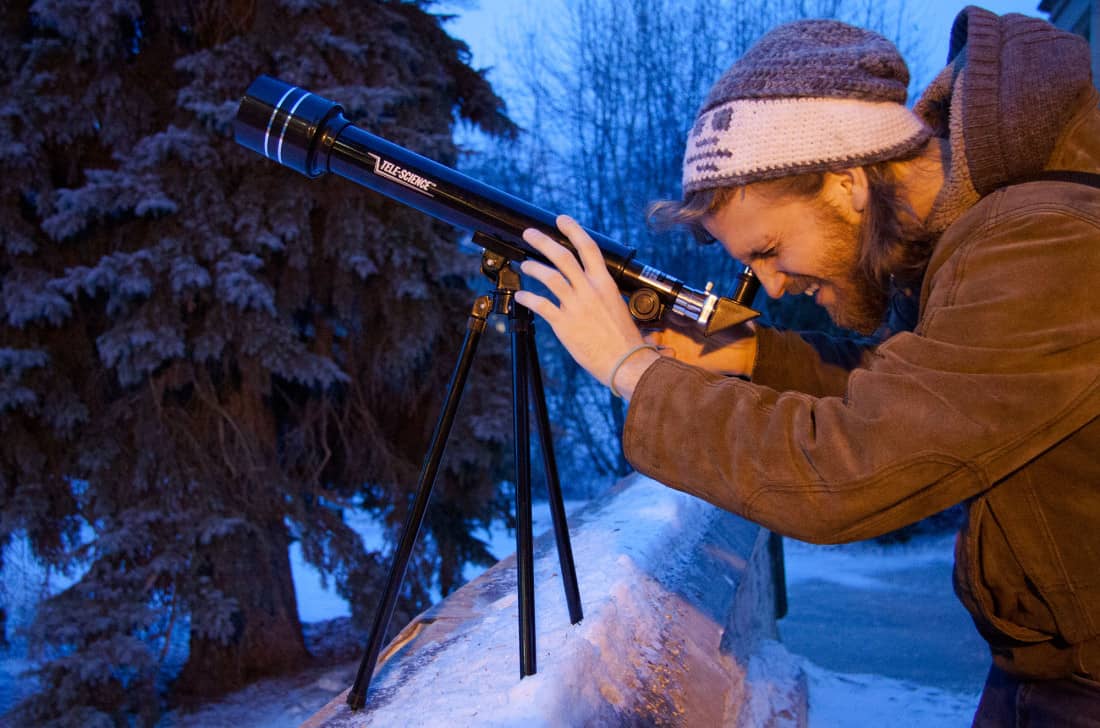
Andrew Cooper is the only known University of Saskatchewan student who has made the shortlist for a one-way trip to the Red Planet.
University of Saskatchewan student Andrew Cooper is among 1,058 people selected to be candidates for a mission to establish the first human colony on Mars.
Dubbed Mars One, the mission is organized by Dutch entrepreneur Bas Lansdorp and is being funded through crowdsourcing. Anyone over the age of 18 was eligible to apply, provided they spoke one of the mission’s 11 official languages.
“I thought the idea of travelling to another planet on behalf of humankind would be a noble venture. It’s not only an inevitability, but it’s one of the most important things we can do,” Cooper said. “And aside from that, space is awesome.”
If successful, Mars One would be the first manned mission to Mars. Beginning in 2024, astronauts are planned to be sent to Mars in teams of four. The first team is scheduled to arrive in 2025 — 210 days after their departure from Earth. Subsequent crews of four would arrive at two-year intervals.
The manned flights are to be preceded by two unmanned voyages — one in 2020 to determine the location of the eventual colony and one in 2022 to send preliminary supplies.
A third-year political studies student, Cooper said he was initially surprised when he was chosen to advance to the second round of the selection process.
“I didn’t understand why they would have chosen me at first until I saw the other kinds of applicants they had accepted. They picked such a varied group of people,” Cooper said. “I think my family was more surprised than I was.”
Candidates were selected based on a series of short essays explaining why they would be a good fit for the mission and how they would respond to certain situations. Additionally, applicants were required to submit a video where they made their case to be chosen for the mission. All video applications can be viewed on the Mars One website.
More than 200,000 people applied to the mission but only 2,782 met all of the requirements of the application.
The shortlist of 1,058 was announced on Dec. 30, 2013. There are 75 Canadians among the shortlisted candidates, but Cooper said only 35 have made their selection public and revealed their identity.
The next part of the selection process is scheduled to begin in April and will further narrow the list of candidates. In 2015, 40 candidates will be chosen to begin training for the mission. Of the 40 selected to partake in training, 24 will be chosen to go to Mars.
A reality show is being planned alongside the mission, to follow the successful candidates through the training process and on their mission to the red planet.
Because of the logistical difficulties in bringing people back from Mars, the mission would most likely be a one-way trip. Cooper said it’s difficult to address questions of how he feels about potentially leaving Earth forever.
“I don’t think that’s a question anyone can answer until they’re actually on the path to Mars… But you’d be crazy not to miss your family or your friends or the culture of Earth; music, art, socialization — that’s what makes you human,” Cooper said.
Cooper, who was born and lived the first 10 years of his life in Nunavut, said the first thing he’d like to do on Mars is build an Inukshuk — a stone landmark used by Indigenous tribes across the Arctic Circle.
“An Inukshuk has many uses in Inuit culture. One of them is as marker to say ‘a group was here,’” Cooper said.
Mars One has attracted a wide range of criticism — ranging from technical concerns to questions of financial viability. At time of print, Mars One had raised $218,984 — a far cry from the project’s estimated budget of US $6 billion, which a number of experts have criticized as being too low. The mission’s proposed reality show is expected to serve as an additional source of income.
Other concerns include producing food, radiation poisoning and even landing on Mars itself.
Cooper acknowledged that the mission would be impossible with today’s technology, but said with the right technological advancements, it could be feasible by the scheduled launch date.
“The most important quality people can employ right now is skepticism,” Cooper said. “Skepticism will either produce critical thought, which is important for the mission, or it will reveal Mars One as an unviable option.”
—
Photo: Jordan Dumba